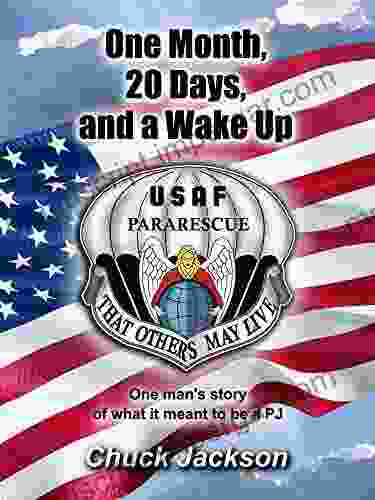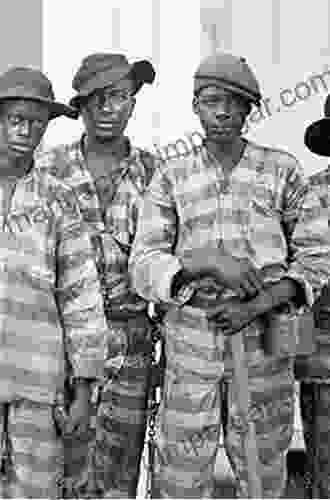Activists, Bureaucrats, and the Creation of the Legalistic State: Chicago in Law

The legalistic state is a form of government in which the law is the supreme authority. This means that all government actions must be based on law, and that the law is binding on all citizens. The legalistic state is often seen as a bulwark against tyranny, as it prevents the government from acting arbitrarily or oppressively.
However, the legalistic state can also be a source of oppression, as it can be used to suppress dissent and to maintain the status quo. In the United States, the legalistic state has been used to justify a wide range of policies, from the internment of Japanese Americans during World War II to the mass incarceration of African Americans in the present day.
5 out of 5
| Language | : | English |
| File size | : | 3623 KB |
| Text-to-Speech | : | Enabled |
| Screen Reader | : | Supported |
| Word Wise | : | Enabled |
| Print length | : | 368 pages |
| Lending | : | Enabled |
In this book, we explore the role of activists and bureaucrats in the creation of the legalistic state, using Chicago as a case study. We examine how activists used the law to achieve their goals, and how bureaucrats shaped the implementation of those laws. We also discuss the impact of the legalistic state on Chicago's development, and how it has shaped the city's present-day politics and culture.
Chapter 1: The Rise of Activism in Chicago
The late 19th and early 20th centuries were a time of great social and economic change in the United States. The Industrial Revolution led to the growth of cities, and the influx of new immigrants from Europe and Asia transformed the American population. These changes created a number of social problems, including poverty, crime, and disease.
In response to these problems, a new generation of activists emerged in Chicago. These activists were committed to using the law to improve the lives of the city's residents. They worked to establish new social welfare programs, to regulate businesses, and to protect the rights of workers and minorities.
One of the most important activist organizations in Chicago was the Hull House. Founded in 1889 by Jane Addams and Ellen Gates Starr, Hull House was a settlement house that provided a variety of social services to the city's poor and working-class residents. Hull House also served as a center for activism, and its residents played a key role in a number of progressive causes, including the fight for women's suffrage and the establishment of the minimum wage.
Another important activist organization in Chicago was the Chicago Urban League. Founded in 1916, the Urban League worked to improve the lives of African Americans in the city. The Urban League provided a variety of services, including job training, housing assistance, and legal aid. It also worked to fight discrimination and to promote racial equality.
Chapter 2: The Bureaucratization of Activism
As the activist movement in Chicago grew, it became increasingly bureaucratized. This was due in part to the need to manage the growing number of social welfare programs that were being established. It was also due to the need to coordinate the efforts of the various activist organizations that were working to improve the city.
The bureaucratization of activism had a number of consequences. On the one hand, it allowed activists to achieve greater scale and impact. On the other hand, it made activist organizations more vulnerable to co-optation by the government and by powerful interests.
One of the most important bureaucratic developments in the history of Chicago activism was the establishment of the Chicago Community Trust in 1915. The Community Trust was a philanthropic organization that provided funding to a variety of social welfare programs in the city. The Community Trust was controlled by a board of trustees that was appointed by the mayor of Chicago. This gave the mayor a great deal of influence over the distribution of charitable funds in the city.
The establishment of the Community Trust had a number of consequences for Chicago activism. On the one hand, it provided a much-needed source of funding for social welfare programs. On the other hand, it gave the mayor a great deal of control over the direction of activism in the city.
Chapter 3: The Impact of the Legalistic State on Chicago
The legalistic state has had a profound impact on the development of Chicago. The law has been used to shape the city's economy, its politics, and its culture.
One of the most important ways in which the law has shaped Chicago's economy is through the regulation of business. The city's zoning laws, for example, have been used to control the location and size of businesses. The city's environmental regulations have been used to protect the city's air and water quality.
The law has also played a role in shaping Chicago's politics. The city's charter, for example, establishes the structure of the city government. The city's election laws determine how elections are conducted. The city's campaign finance laws regulate the way in which candidates for office raise and spend money.
The law has also had a significant impact on Chicago's culture. The city's public art laws, for example, have been used to promote the arts in the city. The city's historic preservation laws have been used to protect the city's architectural heritage.
The legalistic state is a complex and evolving phenomenon. It has the potential to be both a force for good and a force for evil. In Chicago, the legalistic state has been used to achieve a number of important social reforms. It has also been used to suppress dissent and to maintain the status quo.
The future of the legalistic state in Chicago is uncertain. However, the city's history of activism suggests that the people of Chicago will continue to use the law to fight for a more just and equitable society.
5 out of 5
| Language | : | English |
| File size | : | 3623 KB |
| Text-to-Speech | : | Enabled |
| Screen Reader | : | Supported |
| Word Wise | : | Enabled |
| Print length | : | 368 pages |
| Lending | : | Enabled |
Do you want to contribute by writing guest posts on this blog?
Please contact us and send us a resume of previous articles that you have written.
 Book
Book Novel
Novel Page
Page Chapter
Chapter Text
Text Story
Story Genre
Genre Reader
Reader Library
Library Paperback
Paperback E-book
E-book Magazine
Magazine Newspaper
Newspaper Paragraph
Paragraph Sentence
Sentence Bookmark
Bookmark Shelf
Shelf Glossary
Glossary Bibliography
Bibliography Foreword
Foreword Preface
Preface Synopsis
Synopsis Annotation
Annotation Footnote
Footnote Manuscript
Manuscript Scroll
Scroll Codex
Codex Tome
Tome Bestseller
Bestseller Classics
Classics Library card
Library card Narrative
Narrative Biography
Biography Autobiography
Autobiography Memoir
Memoir Reference
Reference Encyclopedia
Encyclopedia Ray Laurence
Ray Laurence Chrissie Anderson
Chrissie Anderson Christopher Lascelles
Christopher Lascelles Jim Webster
Jim Webster Christian Bansal
Christian Bansal Elizabeth Borelli
Elizabeth Borelli Chris Catton
Chris Catton Rachelle Strauss
Rachelle Strauss Eboo Patel
Eboo Patel Jamie Prenatt
Jamie Prenatt Graeme Were
Graeme Were Christopher D Duncan
Christopher D Duncan Chris Carter
Chris Carter Dave Bidini
Dave Bidini Christian Segarra
Christian Segarra Danny Bernstein
Danny Bernstein Douglas R Littlefield
Douglas R Littlefield Mark Forstater
Mark Forstater Jon Marshall
Jon Marshall John Minnis
John Minnis
Light bulbAdvertise smarter! Our strategic ad space ensures maximum exposure. Reserve your spot today!

 Mason Powell100 Real Life Chess Tactics Puzzles To Make You Better Player Chess Puzzles...
Mason Powell100 Real Life Chess Tactics Puzzles To Make You Better Player Chess Puzzles... Sean TurnerFollow ·10.5k
Sean TurnerFollow ·10.5k Craig CarterFollow ·11.2k
Craig CarterFollow ·11.2k Ernest HemingwayFollow ·5.4k
Ernest HemingwayFollow ·5.4k Gil TurnerFollow ·4.4k
Gil TurnerFollow ·4.4k Leo MitchellFollow ·6k
Leo MitchellFollow ·6k Rodney ParkerFollow ·18.5k
Rodney ParkerFollow ·18.5k Jack ButlerFollow ·19.4k
Jack ButlerFollow ·19.4k Darrell PowellFollow ·10.5k
Darrell PowellFollow ·10.5k

 E.E. Cummings
E.E. CummingsOne Man's Story of What It Meant to be Pj
In the tapestry of life,...

 Caleb Long
Caleb LongPattern Theory in Video Keno: Unveiling the Art of...
Embark on an enlightening journey into the...

 Douglas Adams
Douglas AdamsUnveiling the Diplomatic Landscape: The Ottoman Empire,...
Delving into the History...

 Terry Bell
Terry BellThere Still Is No Off Season: Embracing Year-Round...
In a world consumed by routine and the allure...

 Ibrahim Blair
Ibrahim BlairBrain Teasers Games and Puzzles: Exercise Your Mind with...
Prepare to embark on a captivating journey...
5 out of 5
| Language | : | English |
| File size | : | 3623 KB |
| Text-to-Speech | : | Enabled |
| Screen Reader | : | Supported |
| Word Wise | : | Enabled |
| Print length | : | 368 pages |
| Lending | : | Enabled |











